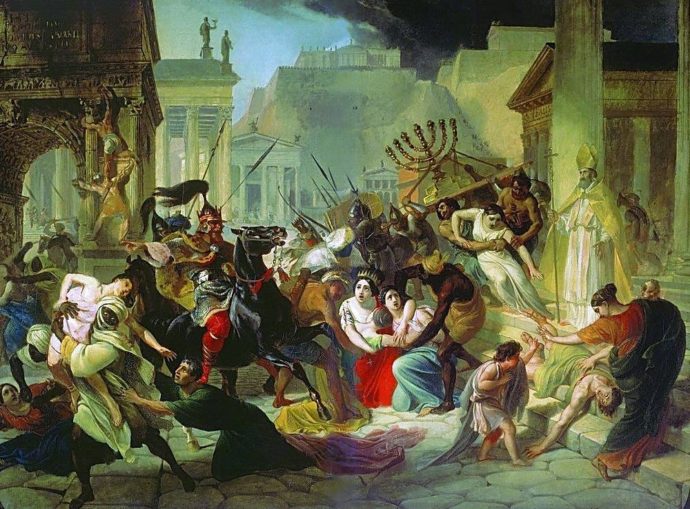By the 5th century, Rome was losing power and influence in Europe. The Empire was already split and the Roman military of the West was growing weaker in power each day. Barbarian tribes were not afraid of pressing forward into the heart of the Empire and the Romans were relatively useless to stop any advancement.
[featured-image single_newwindow=”false”]
BBC narrates what happened next:
In September 476 AD, the last Roman emperor of the west, Romulus Augustulus, was deposed by a Germanic prince called Odovacar, who had won control of the remnants of the Roman army of Italy. He then sent the western imperial regalia to Constantinople.
The Roman empire in western Europe – a centralised superstate which had been in existence for 500 years – had ceased to exist, its single emperor replaced by upwards of a dozen kings and princes.
The ‘dark ages’ which followed were dark not only because written sources were few and far between, but because life became nasty, brutish and short.
The barbarian tribes had won the day and the glories of Rome ceased to exist. These new leaders were not fond of Roman ways and sought to destroy anything associated the classical world.
The classical way of education in particular was almost obliterated and those who remained in Western Europe were more concerned about survival than enriching a flourishing culture.
Except in Ireland.
Preserved from the upheaval of Europe, Ireland was isolated enough that they were able to keep to themselves. This isolation proved to be a good thing as St. Patrick laid a strong foundation of Christianity and Western Culture in Ireland as Rome was crumbling.
Not long after St. Patrick’s missionary adventures in Ireland a new generation of “wandering monks” began to rise, building monasteries across the country and beyond.
What happens next is the basis for why Ireland has been called “The Land of Saints and Scholars.”
Read More: How the wandering monks of Ireland created a thriving Christian culture

